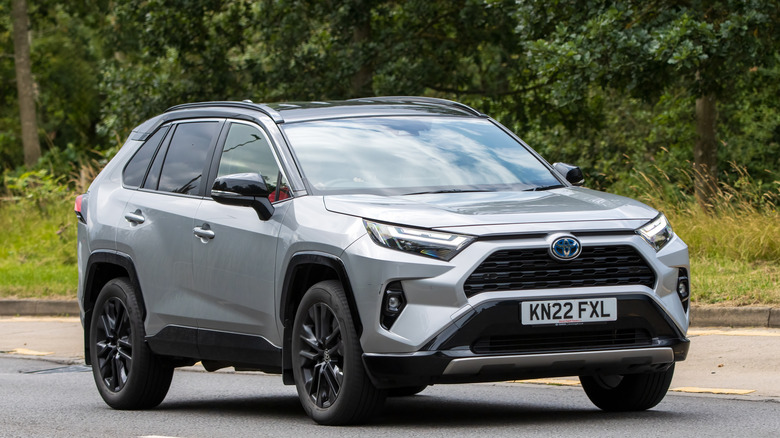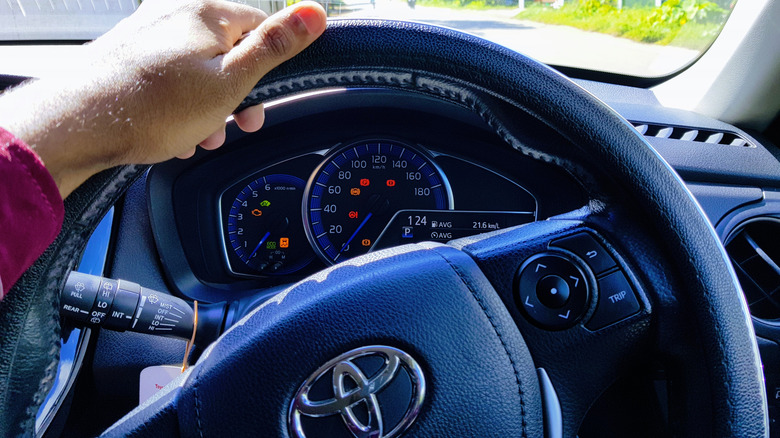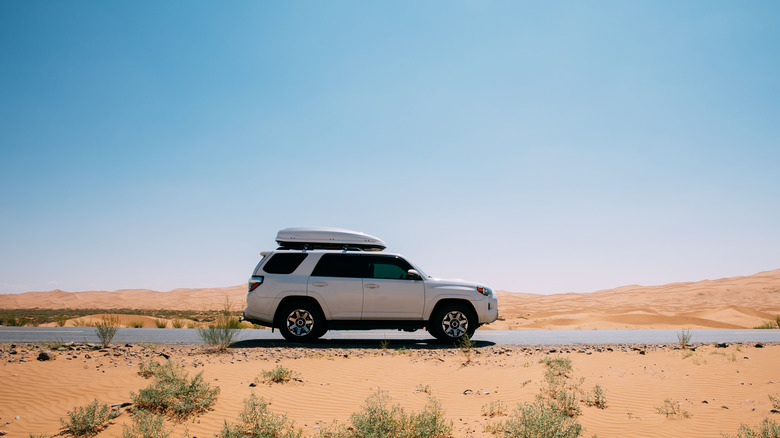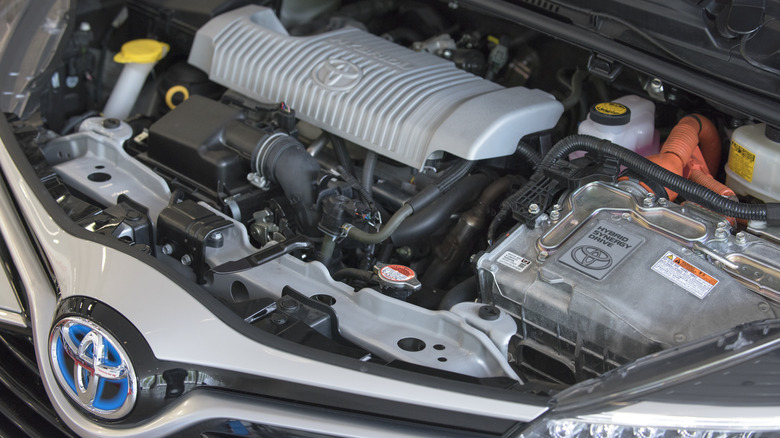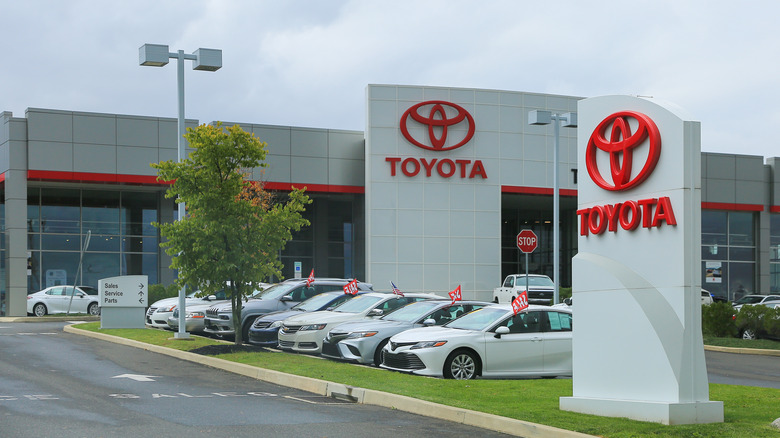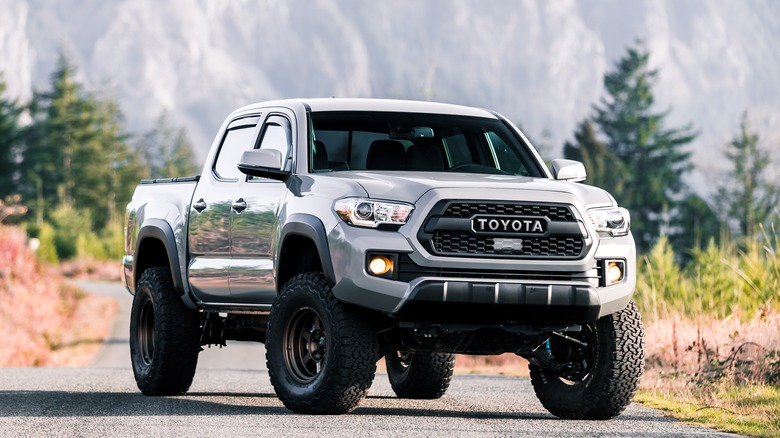5 Reasons Why Toyota Owners Are So Loyal
Toyota's evolution from a division of the Toyoda Automatic Loom Works, Ltd., founded in 1933, to become the largest automobile manufacturer in the world by 2008 is marked by many achievements. The Corolla has been around for over 55 years and has sold 50 million units, becoming the best-selling car of all time. They are also the proud founder of the Prius, the world's first mass-produced hybrid passenger car. However, the company's biggest achievement has to be becoming the highest-ranked mass-market car brand in customer loyalty, with an impressive 60% rating, according to a report by J.D. Power.
There are even more interesting facts and figures to show that Toyota is a brand that people get very attached to. For example, according to a study by iSeeCars, the most loyal drivers are Toyota Prius owners, who typically own that car for more than 15 years, which is over twice as much as the average car. Even among Toyota fans and owners, there are extremely loyal ones like Chris McElroy, who bought 51 Toyotas in 20 years. But why do people love Toyota's so much? What does Toyota have that other car manufacturers don't? This loyalty isn't accidental. So, here are five reasons as to what we think is the answer.
Toyota's are reliable and safe
Toyotas are almost universally known to run well even after they've been on the road for over 20 years or driven more than 200,000 miles. When looking at how Toyota ranks amongst the most reliable car brands, SlashGear reported that Consumer Reports and J.D. Power both have high regard for Toyota brands in terms of reliability, with Lexus, Toyota's luxury brand, scoring overall best in both. Interestingly, J.D. Power ties the Lexus RX and the Toyota C-HR in its 2023 U.S. Vehicle Dependency Study. For more dependable models, check out "The Most Reliable Toyota Models Ever Built, Ranked."
Beyond reliability, Toyota owners also value the brand's commitment to low-cost maintenance, with many models having low ownership costs over five years. Vehicles like the 2023 Camry Hybrid and Tacoma Double Cab are recognized for their cost efficiency.
Families are a huge target market for Toyota — look no further than Sienna's marketing campaign in 2010, "Swagger Wagon." So, naturally, the company emphasizes safety in their vehicles, too. And over time, it's something Toyota owners have come to trust. The 2022 Toyota Avalon, for example, was awarded the Top Safety Pick+ by the IIHS.
None of this is to say that Toyotas are perfect – common issues have included airbag recalls, transmission glitches, and fuel pump failures. However, Toyota's proactive approach to addressing recalls and problems has helped maintain a loyal customer base.
There's a Toyota for everyone
Toyota makes cars for everyone, no matter what you're looking for — that's a fact. If you like exploring off the beaten path, the Toyota 4Runner is tough and ready for adventure. If you prefer something classic and capable, the Toyota Land Cruiser has got you covered with its cool retro look and off-road skills.
For families or anyone needing a dependable ride, Toyota has plenty of SUVs. The RAV4 is a favorite for its just-right size and features, while the Highlander is great for more space and a touch of class. If you need even more room, the Toyota Grand Highlander is a top pick with its roomy interior and fancy features.
If fast cars are your thing, Toyota's GR Supra, one of the best Toyota sports cars ever made, is exciting and stylish, keeping up a tradition of over 40 years. And if you're into electric vehicles, check out the Toyota bZ4X.
Toyota's prices have something for everyone, too. From the more budget-friendly Toyota Corolla Cross Hybrid to the pricier Sequoia, you're getting good value no matter how much you spend.
What's really cool about Toyota is that they offer so many different types of cars, always blending the latest tech with trusted features. That's why people who buy Toyotas often stick with the brand. They know they're getting a car that's just right for them, whether driving around town, heading off-road, or looking for something eco-friendly.
Fuel efficient and eco-friendly engines
Car manufacturers and consumers are becoming increasingly conscious about their impact on the environment. Toyota's approach to engine tech and dedication to green initiatives have made it a go-to brand for environmentally conscious drivers.
One of the core elements of Toyota's strategy is the development of efficient powertrain units. For instance, Toyota's eight-speed and 10-speed automatic transmissions are designed to minimize energy loss, enhance transmission efficiency, and reduce fuel consumption. These advancements, coupled with Toyota's Hybrid System II (THS-II), seen in vehicles like Prius, are another step forward in improving fuel economy and reducing emissions. Besides the Prius, you will find fuel-efficient Toyota models that hold up in 2024.
Toyota's approach to eco-friendly engineering also extends to their plug-in hybrid electric vehicles (PHEVs), which strike a balance between traditional fuel engines and electric power, giving another option for consumers who are hesitant to go fully electric. The Toyota RAV4 Prime is a good example.
Toyota is not just stopping at hybrid tech; they are also making significant strides in EVs and fuel cell vehicles. With plans to roll out a full lineup of next-generation battery EVs by 2026 and a goal to become a leader in EV energy consumption, Toyota is firmly positioning itself in the future of eco-friendly transportation. The company is also committed to hydrogen fuel cell technology, as shown by the Toyota Mirai. With Toyota investing heavily in its future, the question slowly becomes, "Why wouldn't Toyota owners be so loyal?"
Toyota's reputation and brand
Toyota's reputation is equally as impressive as the loyalty of its customers. They've got this unique way of making cars and engaging with people that stands out.
The company's reputation for reliability and quality is significantly bolstered by its manufacturing practices, particularly the Toyota Production System. TPS, also known as Lean Manufacturing, is a cornerstone of Toyota's manufacturing philosophy. This system minimizes waste, optimizes production processes, and ensures high-quality output — it's also one of the most common case studies taught in business schools. Being widely known for good management practices such as TPS goes a long way in convincing customers that their vehicles are worth the loyalty.
Toyota's approach to customer service goes beyond traditional reactive measures, too. This proactive customer support system, highlighted by things like the Toyota Brand Engagement Center, plays a big role in building trust and loyalty. A Reddit user's experience with a 2007 Tacoma that encountered a major issue at just 5,000 miles is a good example. Toyota took this incident very seriously. They checked the truck carefully to find out what went wrong and even brought in the plant manager and experts from Japan. The user wasn't driving gently, but Toyota still wanted to fix it, spending a lot of money in the process to make things right. Customer service stories like these are a big reason why people trust and stick with Toyota.
Resale value
A vehicle's resale value is an essential part of vehicle ownership that often flies under the radar until it's time to sell or trade in. Fortunately for fans and owners, Toyota has consistently demonstrated a strong performance in this area.
Value for money is a term thrown around a lot, but it holds substantial weight when it comes to Toyotas. First, let's talk about depreciation. According to a study by iSeeCars, an average vehicle loses about 39% of its value in the first five years. Toyota breaks this norm significantly. For instance, the Toyota Tacoma, with only a 20% depreciation rate over five years, stands out in the market for retaining its value. Similarly, the Toyota C-HR shows a decent stance in the market, with a mere 24% depreciation over the same period. When it comes to hybrids, Toyota secures six spots among the top 10 rankings and performs well over the average in many of the other categories.
So, why do Toyota cars stay so valuable? There are a few reasons, but it's mostly a combination of the reasons why Toyota owners are so loyal in the first place. Demand also plays a role — since Toyota cars are popular and fuel-efficient, there's always someone willing to buy one used. Combining Toyota's financing options with exclusive leases broadens the brand's appeal. If you are looking to purchase a Toyota, you might want to check out our "10 Toyota Models With Outstanding Resale Value" article next.
